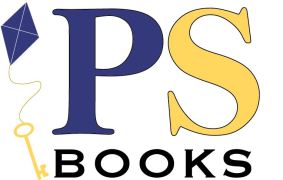By Jon Busch
Only three more days until the Push to Publish conference! Come on out this Saturday, October 10th, and say hello to Corinne Moulder and the many other talented literary folks who will be sharing industry knowledge and advice.
Corinne Moulder joined Smith Publicity in 2007. As Director of Business Development, her consultative approach, insightful recommendations, and tireless work ethic make Corinne a valuable part of our clients’ success as she develops aggressive, “out of the box,” creative, and successful media outreach plans. Corinne earned a degree in English from Ursinus College, with minors in Communications and Creative Writing.
- I’ve noticed that publicity campaigns for books tend to be either excessively sweeping, as with the recent case of Go Set a Watchman, or niche focused and modest. How do you discern which type of campaign a book deserves? Is it author recognition alone or merit based?
At Smith Publicity we are selective about the projects we take on and look to each author/book as a unique entity. By evaluating the author’s background, the core themes/plotline/concepts, the author’s marketing goals and ongoing initiatives, publication date, etc., we’re able to whittle down which of our services might be a fit and then work with authors to tailor their campaign together with their support.
- In the case of the modest campaigns, what types of tactics/strategies will you implement?
For modest campaigns, whether due to budget or recommendation of our team, we look to start with initiatives that help establish a foundation for the author to build upon. We typically begin working within the author’s local media market to build as this creates an obvious point of leverage for expanding into bigger regional and national markets. Additionally, targeting online book reviewers, bloggers, and genre-specific print reviewers increases the chance to start building the number of reviews.
- Are television, print, and radio still the preferred avenues of advertising or have web campaigns surpassed these older venues?
We do not participate in any advertising opportunities. From a PR perspective, however, we absolutely incorporate outreach to TV, radio, and print media contacts when relevant. Traditional media coverage offers lasting credibility as clips, articles, and mentions are often shared on the web.
- Given the glut of content available free on the web, have you increased the use of inbound techniques? If so, please provide an example.
We have tapped into many of the great resources on the web to support our services—especially for works of fiction. NetGalley has become a staple enhancement in our fiction services. Through the great connections we’ve made with bloggers and online reviewers, we’ve also added organized blog tours to our fiction services. Many book clubs have gone virtual which allows for the opportunity to connect with club coordinators across the country to pitch our authors. We’re always scoping out new ways to support our authors and are, of course, open to their ideas as well!
- How has the increase in self-publishing affected your profession?
The boom of self-publishing has greatly benefited book publicity. We’re now able to work with top talent who may never have been able to bring their book to market had it not been for the support of self-publishing. Furthermore, media and reviewers have embraced self-published authors which provides publicists with a much more expansive pool of contacts to pitch on behalf of their authors.
- What type of book has the greatest likelihood of success in the present market?
We don’t discriminate! There is a market out there for so many books and, upon evaluating the criteria for a campaign (author background, goals and expectations, publication date, and more), we work quickly to identify the potential a project has before we take it on. The key is creating a plan that targets the most applicable media contacts and reviewers for the subject/concepts of the book.
- How much do a book publicist’s services cost?
Services range anywhere from $300 to $4,500 per month, depending on the scope of the campaign, the level of publicist involvement, and marketing support service enhancements.
- Is book publicity a thankless business?
No! We’ve been so fortunate to work with many, many authors who strongly believe in our team and our services. Here is just a sampling of testimonials we’ve received from authors we’ve represented: http://www.smithpublicity.com/testimonials/. We love the work that we do and it shows.

